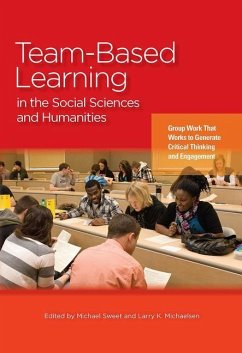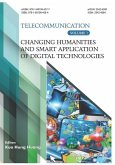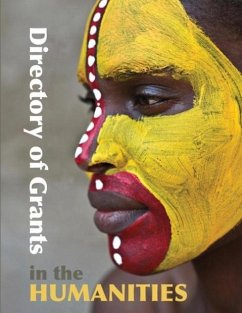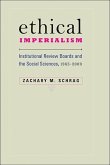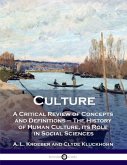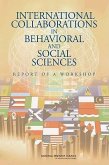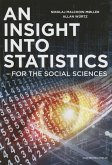Team-Based Learning in the Social Sciences and Humanities
Group Work That Works to Generate Critical Thinking and Engagement
Herausgeber: Sweet, Michael; Michaelsen, Larry K
Team-Based Learning in the Social Sciences and Humanities
Group Work That Works to Generate Critical Thinking and Engagement
Herausgeber: Sweet, Michael; Michaelsen, Larry K
- Broschiertes Buch
- Merkliste
- Auf die Merkliste
- Bewerten Bewerten
- Teilen
- Produkt teilen
- Produkterinnerung
- Produkterinnerung
Team-Based Learning (TBL) is a unqiue, powerful, and proven form of small-group learning that is being increasingly adopted in higher education. This book introduces the elements of TBL and how to apply them in the social sciences and humanities. It describes the four essential elements of TBL - readiness assurance, design of application exercises, permanent teams, peer evaluation - and pays particular attention to the specification of learning outcomes, which can be a unique challenge in our fields.
Andere Kunden interessierten sich auch für
![Changing Humanities and Smart Application of Digital Technologies (Telecommunication Volume 1) Changing Humanities and Smart Application of Digital Technologies (Telecommunication Volume 1)]() Kuo Hung HuangChanging Humanities and Smart Application of Digital Technologies (Telecommunication Volume 1)128,99 €
Kuo Hung HuangChanging Humanities and Smart Application of Digital Technologies (Telecommunication Volume 1)128,99 €![Directory of Grants in the Humanities Directory of Grants in the Humanities]() Directory of Grants in the Humanities184,99 €
Directory of Grants in the Humanities184,99 €![Historical Methods in the Social Sciences Historical Methods in the Social Sciences]() John A Hall / Joseph M BryantHistorical Methods in the Social Sciences1.409,99 €
John A Hall / Joseph M BryantHistorical Methods in the Social Sciences1.409,99 €![Ethical Imperialism Ethical Imperialism]() Zachary M SchragEthical Imperialism31,99 €
Zachary M SchragEthical Imperialism31,99 €![Culture Culture]() A L KroeberCulture17,99 €
A L KroeberCulture17,99 €![International Collaborations in Behavioral and Social Sciences International Collaborations in Behavioral and Social Sciences]() National Research CouncilInternational Collaborations in Behavioral and Social Sciences44,99 €
National Research CouncilInternational Collaborations in Behavioral and Social Sciences44,99 €![An Insight Into Statistics: For the Social Sciences An Insight Into Statistics: For the Social Sciences]() Nikolaj Malchow-MollerAn Insight Into Statistics: For the Social Sciences64,99 €
Nikolaj Malchow-MollerAn Insight Into Statistics: For the Social Sciences64,99 €-
-
-
Team-Based Learning (TBL) is a unqiue, powerful, and proven form of small-group learning that is being increasingly adopted in higher education. This book introduces the elements of TBL and how to apply them in the social sciences and humanities. It describes the four essential elements of TBL - readiness assurance, design of application exercises, permanent teams, peer evaluation - and pays particular attention to the specification of learning outcomes, which can be a unique challenge in our fields.
Hinweis: Dieser Artikel kann nur an eine deutsche Lieferadresse ausgeliefert werden.
Hinweis: Dieser Artikel kann nur an eine deutsche Lieferadresse ausgeliefert werden.
Produktdetails
- Produktdetails
- Verlag: Taylor & Francis
- Seitenzahl: 330
- Erscheinungstermin: 28. Februar 2012
- Englisch
- Abmessung: 253mm x 176mm x 21mm
- Gewicht: 572g
- ISBN-13: 9781579226107
- ISBN-10: 1579226108
- Artikelnr.: 32966940
- Herstellerkennzeichnung
- Libri GmbH
- Europaallee 1
- 36244 Bad Hersfeld
- gpsr@libri.de
- Verlag: Taylor & Francis
- Seitenzahl: 330
- Erscheinungstermin: 28. Februar 2012
- Englisch
- Abmessung: 253mm x 176mm x 21mm
- Gewicht: 572g
- ISBN-13: 9781579226107
- ISBN-10: 1579226108
- Artikelnr.: 32966940
- Herstellerkennzeichnung
- Libri GmbH
- Europaallee 1
- 36244 Bad Hersfeld
- gpsr@libri.de
Michael Sweet is the Director of Instructional Development for the Center of Teaching and Learning (CTL) at the University of Texas, Austin. He holds a Ph.D. Educational Psychology from UT and a Master's degree in Group Communication from the University of California, Davis. Michael has been a college-level faculty developer since 1995, having worked at the University of Oregon and Portland Community College before joining UT Austin in 2004. Michael has published, edited and presented widely on group dynamics and collaborative learning and is currently President of the international Team-Based Learning Collaborative (TBLC). Larry K. Michaelsen is Professor of Management at Central Missouri State University and is David Ross Boyd Professor Emeritus at the University of Oklahoma, a Carnegie Scholar, a Fulbright Senior Scholar, and former Editor of the Journal of Management Education. He is active in faculty and staff development activities and has conducted workshops on teaching effectively with small groups in a wide variety of university and, corporate settings. Dr. Michaelsen has also received numerous college, university, and national awards for his outstanding teaching and for his pioneering work in two areas. One is the development of Team-Based Learning, a comprehensive small-group based instructional process that is now being used in over 80 academic disciplines and on over 200 campuses in the US and in eight foreign countries. The other is an Integrative Business Experience (IBE) program that links student learning in three core courses to their experience in creating and operating an actual start-up business whose profits are used to fund a hands-on community service project.
FOUNDATIONS 1. Critical Thinking and Engagement. Creating Cognitive
Apprenticeships with Team-Based Learning Michael Sweet. University of
Texas, Austin Larry K. Michaelsen. University of Central Missouri 2.
Facilitating Application Activities Jim Sibley. University of British
Columbia 3. Peer Feedback Processes and Individual Accountability in
Team-Based Learning Derek R. Lane -University of Kentucky VOICES OF
EXPERIENCE 4. Application Exercises. Challenges and Strategies in the
Psychology Classroom Karla Kubitz. Towson University Robin Lightner.
University of Cincinnati 5. Connecting Students to the Social World. Using
Team-Based Learning in the Sociology Classroom Erica Hunter. University at
Albany, State University of New York Bryan K. Robinson. The Sage Colleges
6. Team-Based Learning in Economics. A Pareto Improvement Molly Espey.
Clemson University 7. Team-Based Learning in Social Science Research
Methods Classes Sarah J. Mahler. Florida International University
8.Team-Based Learning for Critical Reading and Thinking in Literature and
"Great Books" Courses Bill Roberson. University at Albany, State University
of New York Christine Reimers - University at Albany, State University of
New York 9. Team-Based Learning in the First-Year English Classroom
Roxanne Harde. University of Alberta, Augustana Sandy Bugeja. University of
Alberta, Augustana 10. American History Learned, Argued, and Agreed Upon.
Team-Based Learning in a Large Lecture Class Penne Restad. University of
Texas, Austin 11. Discerning the Elements of Culture. A Team-Based Learning
Approach to Asian Religions and Cultures Joël Dubois. California State
University, Sacramento 12. Applying TBL with Mexican-American Students in
the Social Science Classroom Kristin L. Croyle. University of Texas, Pan
American Edna Alfaro. University of Texas, Pan American 13. Using
Team-Based Learning to Meet the APA Recommendations for Undergraduate
Psychology Education Herb Coleman. Austin Community College 14. Putting
Teams in "Interdisciplinary Technology and Society". TBL in
Interdisciplinary Courses Sunay Palsole. University of Texas, El Paso 15.
Using Technology to Support Team-Based Learning Karen Milligan. Carson
Newman College 16. Perspectives on Using Team-Based Learning to Teach
Introductory U.S. Government Courses Jessica L. Lavariega Monforti.
University of Texas, Pan American Adam J. McGlynn. East Stroudsburg
University Melissa R. Michelson. Menlo College 17. Theatre is a
Collaborative Art. Using Team-Based Learning in Arts General Education
Ronnie Chamberlain. University of Central Missouri 18. I Don't Dare Teach
with Inquiry Based Teaching Methods when I have State Testing Breathing
Down my Neck! Scott Kubista-Hovis
Apprenticeships with Team-Based Learning Michael Sweet. University of
Texas, Austin Larry K. Michaelsen. University of Central Missouri 2.
Facilitating Application Activities Jim Sibley. University of British
Columbia 3. Peer Feedback Processes and Individual Accountability in
Team-Based Learning Derek R. Lane -University of Kentucky VOICES OF
EXPERIENCE 4. Application Exercises. Challenges and Strategies in the
Psychology Classroom Karla Kubitz. Towson University Robin Lightner.
University of Cincinnati 5. Connecting Students to the Social World. Using
Team-Based Learning in the Sociology Classroom Erica Hunter. University at
Albany, State University of New York Bryan K. Robinson. The Sage Colleges
6. Team-Based Learning in Economics. A Pareto Improvement Molly Espey.
Clemson University 7. Team-Based Learning in Social Science Research
Methods Classes Sarah J. Mahler. Florida International University
8.Team-Based Learning for Critical Reading and Thinking in Literature and
"Great Books" Courses Bill Roberson. University at Albany, State University
of New York Christine Reimers - University at Albany, State University of
New York 9. Team-Based Learning in the First-Year English Classroom
Roxanne Harde. University of Alberta, Augustana Sandy Bugeja. University of
Alberta, Augustana 10. American History Learned, Argued, and Agreed Upon.
Team-Based Learning in a Large Lecture Class Penne Restad. University of
Texas, Austin 11. Discerning the Elements of Culture. A Team-Based Learning
Approach to Asian Religions and Cultures Joël Dubois. California State
University, Sacramento 12. Applying TBL with Mexican-American Students in
the Social Science Classroom Kristin L. Croyle. University of Texas, Pan
American Edna Alfaro. University of Texas, Pan American 13. Using
Team-Based Learning to Meet the APA Recommendations for Undergraduate
Psychology Education Herb Coleman. Austin Community College 14. Putting
Teams in "Interdisciplinary Technology and Society". TBL in
Interdisciplinary Courses Sunay Palsole. University of Texas, El Paso 15.
Using Technology to Support Team-Based Learning Karen Milligan. Carson
Newman College 16. Perspectives on Using Team-Based Learning to Teach
Introductory U.S. Government Courses Jessica L. Lavariega Monforti.
University of Texas, Pan American Adam J. McGlynn. East Stroudsburg
University Melissa R. Michelson. Menlo College 17. Theatre is a
Collaborative Art. Using Team-Based Learning in Arts General Education
Ronnie Chamberlain. University of Central Missouri 18. I Don't Dare Teach
with Inquiry Based Teaching Methods when I have State Testing Breathing
Down my Neck! Scott Kubista-Hovis
FOUNDATIONS 1. Critical Thinking and Engagement. Creating Cognitive
Apprenticeships with Team-Based Learning Michael Sweet. University of
Texas, Austin Larry K. Michaelsen. University of Central Missouri 2.
Facilitating Application Activities Jim Sibley. University of British
Columbia 3. Peer Feedback Processes and Individual Accountability in
Team-Based Learning Derek R. Lane -University of Kentucky VOICES OF
EXPERIENCE 4. Application Exercises. Challenges and Strategies in the
Psychology Classroom Karla Kubitz. Towson University Robin Lightner.
University of Cincinnati 5. Connecting Students to the Social World. Using
Team-Based Learning in the Sociology Classroom Erica Hunter. University at
Albany, State University of New York Bryan K. Robinson. The Sage Colleges
6. Team-Based Learning in Economics. A Pareto Improvement Molly Espey.
Clemson University 7. Team-Based Learning in Social Science Research
Methods Classes Sarah J. Mahler. Florida International University
8.Team-Based Learning for Critical Reading and Thinking in Literature and
"Great Books" Courses Bill Roberson. University at Albany, State University
of New York Christine Reimers - University at Albany, State University of
New York 9. Team-Based Learning in the First-Year English Classroom
Roxanne Harde. University of Alberta, Augustana Sandy Bugeja. University of
Alberta, Augustana 10. American History Learned, Argued, and Agreed Upon.
Team-Based Learning in a Large Lecture Class Penne Restad. University of
Texas, Austin 11. Discerning the Elements of Culture. A Team-Based Learning
Approach to Asian Religions and Cultures Joël Dubois. California State
University, Sacramento 12. Applying TBL with Mexican-American Students in
the Social Science Classroom Kristin L. Croyle. University of Texas, Pan
American Edna Alfaro. University of Texas, Pan American 13. Using
Team-Based Learning to Meet the APA Recommendations for Undergraduate
Psychology Education Herb Coleman. Austin Community College 14. Putting
Teams in "Interdisciplinary Technology and Society". TBL in
Interdisciplinary Courses Sunay Palsole. University of Texas, El Paso 15.
Using Technology to Support Team-Based Learning Karen Milligan. Carson
Newman College 16. Perspectives on Using Team-Based Learning to Teach
Introductory U.S. Government Courses Jessica L. Lavariega Monforti.
University of Texas, Pan American Adam J. McGlynn. East Stroudsburg
University Melissa R. Michelson. Menlo College 17. Theatre is a
Collaborative Art. Using Team-Based Learning in Arts General Education
Ronnie Chamberlain. University of Central Missouri 18. I Don't Dare Teach
with Inquiry Based Teaching Methods when I have State Testing Breathing
Down my Neck! Scott Kubista-Hovis
Apprenticeships with Team-Based Learning Michael Sweet. University of
Texas, Austin Larry K. Michaelsen. University of Central Missouri 2.
Facilitating Application Activities Jim Sibley. University of British
Columbia 3. Peer Feedback Processes and Individual Accountability in
Team-Based Learning Derek R. Lane -University of Kentucky VOICES OF
EXPERIENCE 4. Application Exercises. Challenges and Strategies in the
Psychology Classroom Karla Kubitz. Towson University Robin Lightner.
University of Cincinnati 5. Connecting Students to the Social World. Using
Team-Based Learning in the Sociology Classroom Erica Hunter. University at
Albany, State University of New York Bryan K. Robinson. The Sage Colleges
6. Team-Based Learning in Economics. A Pareto Improvement Molly Espey.
Clemson University 7. Team-Based Learning in Social Science Research
Methods Classes Sarah J. Mahler. Florida International University
8.Team-Based Learning for Critical Reading and Thinking in Literature and
"Great Books" Courses Bill Roberson. University at Albany, State University
of New York Christine Reimers - University at Albany, State University of
New York 9. Team-Based Learning in the First-Year English Classroom
Roxanne Harde. University of Alberta, Augustana Sandy Bugeja. University of
Alberta, Augustana 10. American History Learned, Argued, and Agreed Upon.
Team-Based Learning in a Large Lecture Class Penne Restad. University of
Texas, Austin 11. Discerning the Elements of Culture. A Team-Based Learning
Approach to Asian Religions and Cultures Joël Dubois. California State
University, Sacramento 12. Applying TBL with Mexican-American Students in
the Social Science Classroom Kristin L. Croyle. University of Texas, Pan
American Edna Alfaro. University of Texas, Pan American 13. Using
Team-Based Learning to Meet the APA Recommendations for Undergraduate
Psychology Education Herb Coleman. Austin Community College 14. Putting
Teams in "Interdisciplinary Technology and Society". TBL in
Interdisciplinary Courses Sunay Palsole. University of Texas, El Paso 15.
Using Technology to Support Team-Based Learning Karen Milligan. Carson
Newman College 16. Perspectives on Using Team-Based Learning to Teach
Introductory U.S. Government Courses Jessica L. Lavariega Monforti.
University of Texas, Pan American Adam J. McGlynn. East Stroudsburg
University Melissa R. Michelson. Menlo College 17. Theatre is a
Collaborative Art. Using Team-Based Learning in Arts General Education
Ronnie Chamberlain. University of Central Missouri 18. I Don't Dare Teach
with Inquiry Based Teaching Methods when I have State Testing Breathing
Down my Neck! Scott Kubista-Hovis

